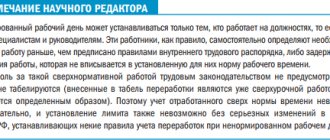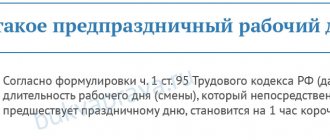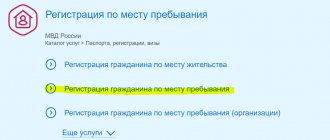Lately, employers who are having difficulties with people working long hours have been turning to us for clarification. The problem is that the latter sometimes start work later, for example, a couple of hours, believing that being late is acceptable, since in previous days there were delays at work after its formal end. And if they were often late, they demand paid time off, indicating that they already worked too much, and significantly. Is the position of the workers legal, should the employer satisfy their demands and provide an additional day off, how is work structured during irregular working hours? You will find answers to these and other questions in the article.
According to Art. 97 of the Labor Code of the Russian Federation, the employer has the right, in the manner prescribed by the Labor Code, to involve an employee in work beyond the working hours established for him:
- for overtime work (Article 99 of the Labor Code of the Russian Federation);
- if he works on irregular working hours (Article 101 of the Labor Code of the Russian Federation).
Irregular working hours in the Labor Code of the Russian Federation
What is an irregular working day, the Labor Code of the Russian Federation gives the answer in Article 101 of the Labor Code of the Russian Federation. This is a special mode of work, according to which some employees, by order of the manager, may be occasionally involved in performing their work duties outside the standard work schedule. In turn, Article 100 of the Labor Code of the Russian Federation regulates the inclusion of information about irregular working hours in an employment contract, since information about the working hours is included in the list of mandatory ones. This fact is supported by Article 57 of the Labor Code of the Russian Federation “Content of an employment contract”.
The duration and mode of the working day are established in the internal documents of the organization in accordance with the norms of the Labor Code of the Russian Federation. Working beyond the norm is one of the controversial issues that periodically arises before the head of an enterprise. What compensation are entitled to employees and which employees cannot be hired for such work? To consider these issues, it is necessary to analyze the current labor legislation.
Involvement in work outside the working hours should be done sporadically, and not constantly. Involvement can be carried out both before and after the start of a standard shift, without obtaining additional consent from the employee, and in any form, including oral. This is stated in the Letter of Rostrud No. 1316-6-1 dated 06/07/2008, which provides explanations on the procedure for applying such a work schedule.
Since the law does not define the concept of episodicity, this gives rise to disputes between the employer and employee. There are additional clarifications on this controversial issue in the Letter of the Ministry of Labor dated October 29, 2018 No. 14-2/OOG-8616. According to the position of the ministry, the working day in connection with the establishment of such a schedule should not turn into an extended one. The established standard of working time remains the same; the duration of overtime, therefore, should be within reason. That is, in the opinion of the law enforcement officer, the working day should definitely not become dimensionless and increase in duration. The very sign of episodicity must be established for each situation, taking into account the labor function.
Employees do not have the right to independently change their working hours. The establishment of irregular working hours does not provide grounds for lateness, delays, etc. This does not mean the introduction of a flexible work schedule. Employees must still comply with discipline and the requirements of the Internal Labor Regulations.
At the same time, an employee who is involved in work outside the working time schedule established for him may apply for additional days of vacation, even if the condition of an irregular working day is not specified in his contract.
To whom and how is an irregular schedule established?
It is not people of a specific profession who are recruited to work extra time, but specialists who work in a specific position. There are no restrictions in the selection of positions for which NSD is applied. At the same time, the specifics of the work are taken into account. The list is formed in a separate order.
It is unacceptable to establish NSD for all positions available in the organization. This approach will be called into question at the first inspection by regulatory authorities.
There is only one exception - for drivers. The working regime, provision of rest and other conditions for this category of employees are authorized to be approved by the Ministry of Transport of Russia (Part 2 of Article 329 of the Labor Code).
The NSD is established only for some drivers (clause 14 of the Order of the Ministry of Transport of Russia dated August 20, 2004 N 15) for:
- drivers of passenger cars (except taxis);
- involved in expeditions and survey parties.
Documentation of conditions
Everyone should know their working conditions. Therefore, already at the employment stage, future employees are familiarized with the collective agreement, PVTR and other internal documentation relating to the position and functions performed.
The NSD regime is correctly recorded in the documents. For this purpose, a list of positions to which it will be applied is approved.
The conditions under which NSD is used, as well as the procedure for its compensation, are specified in the clauses of the employment agreement (Article 57 of the Labor Code). If this is not done, you cannot be legally hired for additional labor. The signature indicates the person’s consent to the application of the agreed regime against him, if such a need arises.
Separate wording on the definition of an additional regime is provided in the order by which the employee is admitted to the organization.
The transfer of a specialist to NSD who previously worked on a regular schedule must be accompanied by a written warning. The message is sent two months before the planned work (Part 2 of Article 74 of the Labor Code).
It is up to the employee to agree or not, because the new conditions may be unacceptable to him. Then he should be offered other vacancies (even with a lower salary) or another position. An offer to work in another location is acceptable if this condition is specified in internal documentation.
If the offer is not satisfactory or there are no vacancies, the contract is subject to termination in accordance with clause 7 of part 1 of Article 77 of the Labor Code.
If you agree to work extra time, an agreement to the contract is drawn up. Then an order is generated reflecting the fact that the employee has changed his previous work regime.
Development and approval of a list of positions with NSD
A list of positions for workers with irregular working hours is established with the following documentation (Article 101 of the Labor Code):
- collective agreement (or annex to it);
- a separate agreement;
- local regulations (for example, PVTR, regulations on recording labor time).
First of all, the use of NSD needs to be consolidated in the PVTR. These actions are mandatory in accordance with Article 189 of the Labor Code.
The list is approved by issuing a separate order on behalf of management. When making a decision, the opinion of representatives of the trade union (if any) is taken into account.
In accordance with the Russian Federation GD dated December 11, 2002 N 884, an NSD may be appointed (clause 2):
- management, technical or business personnel;
- specialists whose work hours cannot be accurately recorded;
- employees who allocate their own time to work;
- if the specifics of the activity divides working time into several parts of indefinite duration.
Designation in the employment contract
The primary document that indicates the irregularity of the schedule is the agreement with the employee (Articles 57, 101 of the Labor Code). The terms of the NSD are essential and therefore are always provided for in the contract.
Before signing the contract, the specialist needs to familiarize himself with the list of positions to which NSD applies. He should see that his position is also on this list.
In addition, a clause should be provided that defines the procedure and amount of compensation for work during additional time, unless a separate provision has been developed and approved.
If a specialist is transferred to a position with NSD, then an additional agreement is prepared for the existing contract. As an option, a new agreement with an updated version is signed (Articles 72, 72.1 of the Labor Code). Thus, the employee is provided with guarantees of compliance with his labor rights.
Nenorm_rab_den
Drawing up an order establishing irregular working hours
An order on irregular working hours will be required if NSD is assigned to an already working specialist, and such a regime has not previously been prescribed in the contract.
There is no unified form, so the template is usually developed by the organization with its further approval.
- “Order” is written in the central part. Then at the bottom they put the document number (registered in the accounting journal) and the date. The preamble indicates the reasons for the application of the regime.
- The order is issued only when a specialist position is included in the list of positions with NSD. It is personalized, as it determines the regime for a specific employee. Therefore, the order specifies the full name of the specialist, his position, the name of the unit and the place where he works. It is important to indicate the day from which work in the new mode will begin.
- The next point includes instructing responsible persons to prepare and implement the NSD (for example, issue notifications and send them to employees).
- The final paragraph reflects information about the person responsible for fulfilling the terms of the order.
The manager signs the document with a transcript and affixes the organization’s seal, after which he submits it for execution. The order is provided to the employee for review.
obrazec-prikaz-o-nenormirovannom-rabochem-dne
Long hours and overtime: similarities and differences
Overtime work is a separate type of overtime, which has nothing to do with the irregular working hours. However, these concepts are often confused.
For working hours in excess of the norm, the employee is only entitled to additional leave, in accordance with the Labor Code of the Russian Federation. At the same time, the employees involved in them are subject to all the rules governing the beginning and end of work, the procedure for recording working hours, exemption from work on weekends and holidays, etc.
Now let's take a closer look at the differences between irregular working hours and overtime work, with which it is most often confused. For easier understanding, let's present them in a table:
| Irregular day | Overtime work |
| Start and end times can be changed flexibly | Start and end time of work (shift) - in accordance with PVTR |
| Occasional overtime, no restrictions on the duration of overtime | No more than 120 hours per year and 4 hours on two consecutive days |
| The condition of working outside the standard hours must be specified in the employment contract, in the section “Working hours” | The provision for overtime work is not included in the employment contract |
| The consent of an employee subject to the appropriate regime is not required to engage in work. | Employee consent is required to engage in overtime work. |
| Additional days of vacation are applied as compensation | Additional increased pay or time off will be used as compensation. |
The Letter from the Ministry of Labor states that employment on weekends and holidays is carried out in accordance with Art. 113 Labor Code of the Russian Federation. Even if an overtime work schedule is established for workers, weekends and holidays do not automatically become working days for them. That is, the established procedure must be followed: obtaining consent in writing with prior notification of the opportunity to refuse (for certain categories of workers) and obtaining the opinion of the elected trade union body and the subsequent issuance of a special order on working on a weekend or holiday. Payment is made in an increased amount, in accordance with the law. The same applies to night work.
IMPORTANT!
The law establishes an eight-hour working day, not including break time.
Compensation for work for irregular hours
As a general rule, employees who work on an irregular schedule are entitled to additional days of vacation. This type of compensation is regulated by Article 119 of the Labor Code.
However, some employers deviate from this rule, compensating for work in special conditions with monetary bonuses. Such payments are made separately and at personal discretion.
Vacation for irregular working hours
The Labor Code establishes the mandatory provision of annual additional leave to employees working under NSD conditions (Part 1 of Article 116 of the Labor Code).
The duration of such leave should not be less than three days, which is fixed by the employer in the collective agreement or internal regulations (Article 119 of the Labor Code).
Based on the provisions of Article 120 of the Labor Code, the maximum period of additionally granted leave cannot be limited. At the same time, there are recommendations according to which it is better to assign additional leave within 12 working days (clause 8 of the Rules “On regular and additional leaves”). Since this period also falls on the weekend, a couple more days are added to this period.
When determining the duration of additionally provided leave, the frequency of involvement in irregular work and its fixed duration are taken into account.
If we are talking about employees of federally funded organizations, the rules for granting them additional leave are established by RF PP 884 of December 11, 2002.
When financed from the budget of a constituent entity of the Russian Federation, the procedure and conditions for vacations are determined by the government authority of the relevant constituent entity. With local financing - by local governments (Article 119 of the Labor Code).
Payment for irregular working hours instead of vacation
Since the law does not establish the obligation of financial compensation for time spent on irregular work, the amount of payment will depend entirely on the employer.
The employee has the right to insist on material compensation only on the basis of Article 126 of the Labor Code - if the total duration of leave (annual and additional) exceeds 28 days.
The basis for the accrual will be a written statement from the interested employee. However, the employer reserves the right to refuse the request.
Additional payment can be made unconditionally if the employer initially established the corresponding provision in the local act. In this case, the compensation will be considered part of the salary.
How many hours can an irregular working day last?
A five-day work week with two days off and eight-hour shifts is the standard work schedule in Russia. But the employer has the right to increase the duration of work if necessary, using overtime or work outside the norm. At the same time, the duration of overtime work is limited, but irregular working hours are not. The law only limits the conditions for engaging in work beyond the norm: they must be episodic, and the employer must really need the employee to perform his direct job duties. The duration of overtime is not limited; the main criterion for determining it in this case is its sufficiency to complete all tasks set by the employer (included in the employee’s labor function). On the issue of episodicity: such processing should not be done every day over a long period of time.
How many extra hours are allowed?
According to Art. 91 of the Labor Code, the normal length of the working week is 40 hours, usually a five-day week with an 8-hour working day.
But in some cases, if necessary, the employer can change the work schedule and involve an employee:
- to overtime work
- irregular day
And if the Labor Code specifies clear restrictions on the duration of overtime work, then there are no such specific instructions for irregular days.
There are only requirements that involvement in NSD:
- should not be a constant, but only an episodic phenomenon
- must be caused by extreme necessity
- does not apply to weekends and holidays
- does not apply to persons working part-time
ATTENTION! Obtaining the consent of a subordinate to perform work duties after completion of working hours is not required.
What compensation is due?
Since information about an irregular schedule is significant and must be included in the employment contract, the employer must familiarize the future employee with this condition, as well as the compensation that he is entitled to for overtime working hours. In particular, according to Article 119 of the Labor Code of the Russian Federation, employees who work in this mode are entitled to additional paid leave. Its duration is determined by the collective agreement, but it cannot be less than three days.
An employee has the right to contact the employer with a request to replace additional leave for overtime with monetary compensation. This possibility is provided for in Article 126 of the Labor Code of the Russian Federation. However, providing this cash payment is the employer's right, not an obligation.
Accounting for irregular working hours
The employer’s obligation to record in the time sheet the time worked by each employee is enshrined in the Labor Code - Article 91 of the Labor Code. It is on the basis of this data that payroll is calculated.
However, opinions differ regarding the recording of irregular time:
- The time worked in the NSD mode must be recorded in the general accounting document. For this, forms T-12 and T-13 are used. In order not to confuse the designation, the days worked should be noted.
- Overtime is not recorded in any way if the employer does not intend to pay for it in the future, providing only additional days for vacation.
- To account for work on an irregular schedule, you must use a separate accounting document. Only the time spent on irregular work by individual employees (positions) is noted here. Normal working hours should be noted on the general timesheet.
An irregular schedule is established only for some employees, if a work necessity arises. After work, it is advisable for the employer to record the duration of work in irregular hours.
If working hours are irregular, you should carefully monitor compliance with the frequency of work, otherwise the work will have to be paid as overtime. If you have questions or disputes regarding long working hours, please contact our labor lawyer for a free consultation.
List of positions with irregular working hours
According to Article 101 of the Labor Code of the Russian Federation, responsibility for preparing a list of positions with irregular working hours lies with the employer. This list must be included in the internal labor regulations, collective agreement or other regulations of the enterprise. This norm is confirmed by Decree of the Government of the Russian Federation of December 11, 2002 No. 884. According to it, the list may include positions in which employees distribute working time independently, and the duration of work cannot be accurately recorded. For example, such positions may include:
- managers;
- technical personnel: workers, security guards, etc.;
- housekeeping staff;
- maintenance personnel;
- accounting and financial department employees;
- technologists;
- adjusters.
When preparing a list of positions and assigning employees to them, it is necessary to rely on labor law norms regarding which categories of employees cannot be assigned to work with irregular working hours. This category includes:
- persons aged 14 to 18 years;
- disabled people of all groups;
- workers and workers of other specialties engaged in hazardous and harmful types of work.
Documenting
The introduction of an irregular work schedule by a business entity must be accompanied by documentation, which is important for management and for hired personnel. The establishment procedure includes several stages:
- Establishment and approval of a register of positions of a legal entity or individual involved in work with an irregular regime, including:
- filling specific positions by employees;
- agreement with the active members of the trade union, if any;
- approval by a collective agreement of an institution or organization.
- Familiarization with the document against the signature of employees and implementation in the internal rules, mandatory for execution by the employees involved. Further refusal of a citizen to work according to an irregular time schedule is equivalent to failure to perform official duties.
- Fixation in an individual contract upon admission or in an additional agreement if an irregular working day is established for an employee on the payroll. Time intervals must be specified in a local document, and the approved schedule:
- not “dimensionless” in duration in terms of hours and establishment period;
- associated with the execution of direct orders included in the category of duties within the scope of the labor function.
- Issuance of an order when necessary and sufficient conditions arise.
If the position held is not on the list, then the employee has the right to refuse the established regime without applying disciplinary measures due to the lack of legal grounds. Explanation and justification of the reasons are not required, since non-inclusion in the list will cancel the position from those attracted in the event of non-standard situations and exceptional circumstances.
The consent of a specialist, in the absence of a documented norm, provides rights and compensation payments similar to the rest of the team.
How to formalize the involvement of an employee to work outside the schedule
An organization may draw up a separate Regulation on irregular working hours or issue a special order. The standard form order contains all the necessary details and a separate paragraph indicates that an irregular working day is being introduced in accordance with the Labor Code of the Russian Federation for certain categories of workers. A list of positions for which irregular working hours are established can be given in the appendix to the order.
Order on approval of the list of positions
Despite the fact that the Labor Code does not contain a direct prohibition on hiring pregnant women for work with irregular hours, it is still not recommended to attract this category of workers, since the appointment of pregnant women to positions with irregular working hours is contrary to Article 93 of the Labor Code of the Russian Federation. She says that a woman has the right to a shorter working day.
Employment contract
Drawing up an employment contract is mandatory when applying for a job. When applying a regime of irregular working hours, an indication of it must be present in the agreement between the parties. By signing such an agreement, the employee agrees to the establishment of a special working day. It is also necessary to familiarize the new employee with all local regulations.
Order for employment with irregular working hours
It is worth remembering that any employee, be it a worker or a director, can be involved in additional work only to fulfill their job duties. The performance of other types of activities must be formalized as a separate agreement.
Registration of attraction to work beyond normal working hours
In irregular working hours, an employee is involved in work periodically by order of the employer.
However, in Art. 101 of the Labor Code of the Russian Federation does not say how such an order should be drawn up. Based on this, we can say that the legislator also allows oral form. At the same time, we believe that oral instructions should only be used if the company has clearly established time tracking. There are two positions regarding the fixation of overtime during irregular working hours.
Some experts believe that this is simply necessary, since according to Part 4 of Art. 91 of the Labor Code of the Russian Federation, each employer must keep accurate records of the working time worked by each employee. For this purpose, a work time sheet of the unified form T-12 or T-13 is most often used. Using magazines is also not prohibited.
If an employee is late after work, then most likely the employee entering information into the time sheet will go home earlier, and accordingly there will be no one to record the number of overtime hours. In such cases, it is advisable to issue a written order. In addition, you can stipulate in the job description or employment contract, for example, that an employee stays at work for two hours twice a month to prepare a report. But there is no need to establish a condition that you need to stay late every day or every other day. Otherwise, when an employee applies to the State Labor Inspectorate, inspectors recognize such periodic involvement in work outside working hours as a violation of labor legislation.
Other experts believe that indicating overtime on the timesheet leads to the possibility of confusing irregular working hours with overtime work, and if the accountant considers the mark on the timesheet to be information about overtime, he will pay for it.
We adhere to the first point of view, since no one has canceled the time sheet. And recording the time spent at work will help the employer track the frequency of going beyond the working day. In addition, time tracking will be useful in the event of any emergency - it will be possible to say for sure whether the employee was at work or not.
note
We recommend that you indicate the standard working hours of an employee with irregular working hours in the time sheet. And records of processing can be kept in a separate journal.
Part-time job
There is no law prohibiting part-time workers from using irregular working hours. However, in practice, its establishment is possible only when the part-time worker is free from performing work functions on some days, since in another case a part-time working day has been introduced for him.
The latest changes regarding irregular working hours were made to Art. 101 of the Labor Code of the Russian Federation in 2021. Then the legislator introduced a new rule according to which employees working on a part-time basis can establish an irregular working day only if the following conditions are met:
- a part-time working week is established by agreement of the parties;
- this part-time work week is established with a full-time work day.
Thus, at the moment, an irregular working day, according to Art. 101 of the Labor Code of the Russian Federation in the latest edition cannot be established for part-time workers, unless it is a part-time working week.
Procedure for paying compensation for additional leave
Leave compensation for overtime work is paid in the following cases:
- upon dismissal of an employee for days of additional leave not taken off;
- if the employee himself prefers to take the money instead of rest days, writing a corresponding statement to the employer.
Compensation for termination of an employment contract is calculated in the usual manner, based on average earnings for the due calendar days. A similar algorithm is used when replacing additional allowance with a cash payment. The calculation formula is as follows:
However, there are differences in the procedure for determining the number of calendar days due for each case.
Even if an employee works irregular hours, part-time, he is granted annual additional leave on the usual basis.
Long working hours in 2021: changes, latest news
The State Duma of the Russian Federation intends to consider a bill on changing the rules for regulating irregular working hours. Changes are planned to be made to Art. 101 and 119 of the Labor Code of the Russian Federation. The bill was submitted to the State Duma of the Russian Federation back in 2021; a new date for its consideration was set in February 2021 after almost two years of consideration in the State Duma Council. In the explanatory note, the initiators of the amendments claim that the draft serves the purpose of eliminating the unreasonable use of irregular working hours. It is assumed that such a regime will be applied only after it is enshrined in a local regulatory act: a collective agreement. According to the draft, it is prohibited to introduce such a working day for pregnant women, minors, citizens experiencing health problems, as well as to exceed the maximum number of additional working hours per year (no more than 120). Those who work more hours than normal will be paid in accordance with overtime regulations. Moreover, these prohibitions cannot be violated even with the employee’s consent. For work beyond the norm, additional paid leave will be granted, lasting from 7 to 15 days. If these amendments are made to the Labor Code of the Russian Federation, the practice of using irregular working hours may change significantly.
Order form for approval of the list of positions with irregular working hours
Employment contract form
Sample of filling out an admission order
Summarize
If necessary, the organization can establish an irregular working day for individual employees.
At the same time, a local regulatory act must define a list of positions for which such a work regime is applied. The provision for a working mode that differs from that established in the organization must be recorded in the employment contract. An irregular work schedule presupposes adherence to the established work and rest regime at the enterprise, and, if necessary, an increase in work hours. Overtime is compensated by additional paid leave of at least three days.
Unlock access to the private part of Clerk with a Premium subscription. Get hundreds of webinars and online courses, unlimited consultations and other proprietary content for accountants.
Hurry up to subscribe with a 20% discount until October 15, 2021. Read more about “Premium” here.








